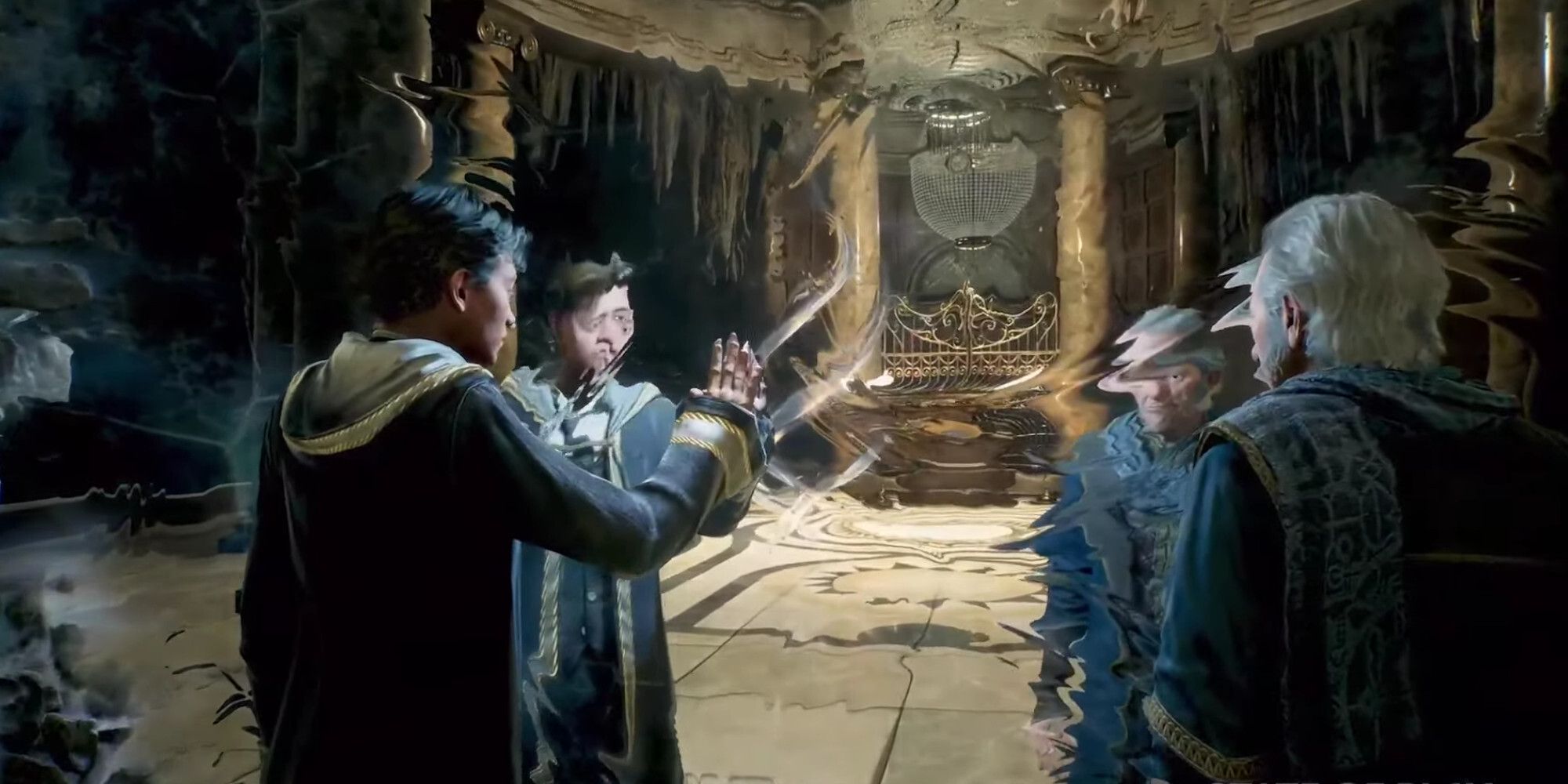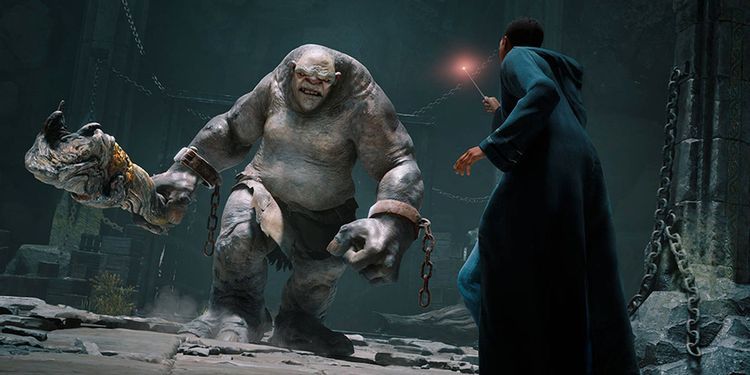After being announced nearly two years ago - and leaked almost two years before that - Hogwarts Legacy was finally revealed during this week’s PlayStation State of Play. What could have been an exciting time for life-long Harry Potter fans has become a moral quagmire thanks to JK Rowling’s unwavering commitment to the persecution of transgender people. Now that Rowling has become the figurehead of a hate group, we can’t just buy a Harry Potter game without grappling with the social and ethical ramifications of supporting her media empire. Some have called for a boycott of Hogwarts Legacy and Harry Potter, while others remain committed to the franchise, believing that certain nuances of business will allow them to enjoy the Wizarding World while keeping their hands clean.
This isn’t the only boycott conversation the gaming community has had in recent memory. A similar debate spawned out of the Activision Blizzard lawsuit and provoked many to call for a boycott of Diablo 2: Resurrected. The arguments made then were largely the same as the arguments being made now. We’ll undoubtedly have the same exact conversation again when Hogwarts Legacy, Overwatch 2, and Diablo 4 come out, too. The discourse is circular and unending, but I’ve arrived at a position that has the power to free us all from spending the rest of our lives fighting the same social media battle every time a company or person in games does something to compromise the ethics of their work. Here it is: boycotts don’t work, but you still have a moral imperative to oppose harm when you see it.
It may not be the most satisfying conclusion, but it’s true. Video game boycotts have never and will never work, and we have decades of evidence to prove it. Modern Warfare 2, Left 4 Dead 2, The Wind Waker, and Pokemon Sword & Shield were all embroiled in boycott movements before release, and each and every one of them were major commercial successes. The problem is two-fold. First, gamers just aren’t particularly good at following through on boycotts, and second, the global gaming community has grown way too big to support collective action. Even if hundreds of thousands of people were so mad about Dexit that they were willing to boycott Sword & Shield, millions of other players either didn’t know or didn’t care enough about the issue and bought the games anyway.
The situation with Hogwarts Legacy and Activision Blizzard is obviously very different. This isn’t a matter of terminally online gamers that are raging over Wind Waker’s art style or Modern Warfare’s private servers. This is about a widespread and ongoing abuse of developers, in the case of Activision Blizzard, and a matter of targeted discrimination, in the case of Hogwarts Legacy. These are big, important issues that extend far beyond the world of gaming, but it remains a fact that the enormous customer base for Activision, Blizzard, and Harry Potter games is never going to know or care about a boycott. Even if everyone on social media was completely aligned on these issues and agreed that a boycott was necessary - which they don’t - the vast majority of people that are going to buy Hogwarts Legacy would never even know about it.
This is not to say that it doesn’t matter whether or not you buy Hogwarts Legacy. Just because a boycott is out of the question doesn’t mean we have to be nihilistic about our purchasing decisions. A boycott is a protest, it’s meant to elicit a response from the person or business you’re boycotting. But Rowling isn’t going to change her mind, and Warner Brothers isn’t going to cancel the game. There’s nothing we can do in this situation but oppose harm when we see it. If you believe that JK Rowling’s behavior and words are harming trans people, then you should not buy the Harry Potter game.
I want to take a second to address those that believe Rowling is a danger to trans lives but think they can still rationalize buying Hogwarts Legacy. There’s a few common arguments I’ve seen, many of which could be applied to the Activision Blizzard situation as well, and I don’t think they stand up to scrutiny. It doesn’t matter that Rowling didn’t work on the game or that the studio has (feebly) distanced itself from her politics. Rowling’s strength as a media figure comes from her being the creator of Harry Potter. As long as the Harry Potter IP thrives, Rowling will continue to be a powerful and influential person in the world. It wouldn’t matter if she didn’t make a dime from Hogwarts Legacy directly. Propping up Harry Potter props up Rowling, and it always will.
You also can’t defend buying the game by claiming you want to show your support for the developers. There are many people that work at Avalanche Software that oppose Rowling’s views, and it’s tragic that they likely worked on this game for years before Rowling exposed her beliefs. I sympathize with them, but to say you intend to buy the game to support those developers is disingenuous. Were that the case, you would have bought every game ever made in order to support the developers that made them. As our own Stacey Henley points out in a recent piece on this subject, “If you're supporting them specifically because they're working on Harry Potter, then you're not supporting them. You're doing this thing called 'buying a video game'.” Unless you’re the world’s biggest Tak and the Power of Juju fan, you’re buying it because you’re a fan of Harry Potter, not Avalanche Software.
You’re not punishing the developers for Rowling’s behavior if you don’t buy the game. Developers aren’t paid based on sales, and bonuses based on performance have largely gone out of fashion. Even when that happened, it was typically in relation to review scores, not sales numbers. If you’re worried about people getting laid off if the game isn’t successful enough, remember that that’s something that happens at most studios all the time after a game launches, regardless of how many copies were sold. These developers need unions, not more sales.
As the leftist Sonic the Hedgehog meme says, there’s no such thing as ethical consumption under capitalism. While the phrase is meant to rightfully pin the source of society’s woes on corporations, many like to use it to absolve themselves of responsibility for consuming unethically. It’s an easy trap to fall into. Every time you ever saw a Marvel or Star Wars movie you were indirectly funding Republicans in Florida that want to exterminate all LGBTQIA+ people. You can’t even drink a bottle of water without funding Nestle or Coca-Cola, two companies that exploit the poor, destroy communities, and do irrevocable harm to our ecosystem.
It would not be possible to completely avoid contributing to and propagating all the harm in the world, especially when so much corporate wrong-doing is unknown to us. As abusive and sexist cultures are exposed across the game industry, it can feel like it’s impossible to buy a game without lining the pockets of predatory, exploitative CEOs like Bobby Kotick.
You can’t possibly do the right thing all of the time, but you can do this. Don’t buy Hogwarts Legacy if you care about the rights of trans people. It almost certainly won’t change anything, but it’s the right thing, and sometimes that’s all we can do.



